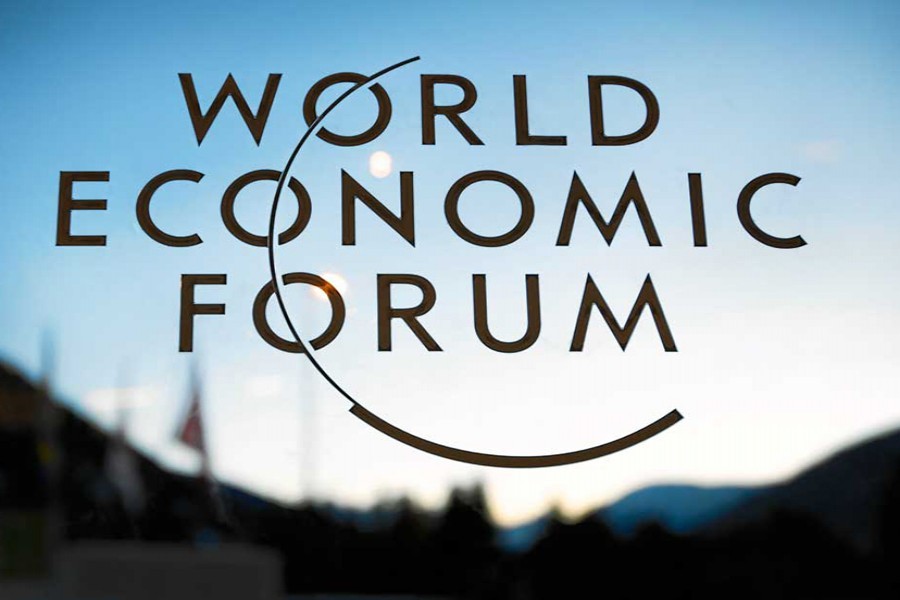
Published :
Updated :

It will hardly be an exaggeration to say that over the past twelve-thirteen months, partnership or collaboration on a global scale has come to a standstill. Nothing even in terms of promises has emerged to assuage the decline in global trade, investment and economy. Clearly, it is the pandemic raging across continents that has baffled world communities on the one hand and on the other, development partners and organisations which used to routinely roll out plans for collaboration in myriad fields also kept their fingers crossed on how to tide over the difficult time. There have been no predictable routes to suggest for enlivening trade, economy and environment-related issues; and international agencies were neither in a position to work on backlogs nor did they find it suitable to plan things for the future in a meaningful way. Amid the unprecedented stalemate, the most significant event is no doubt the vaccine roll-out. Hopefully, things are going to turn around, though life may not be the same as before, or who knows!
The World Economic Forum's (WEF) founder Klaus Schwab in a recent interview has termed the current difficulties facing nations as shared challenges that can only be overcome by increased global collaboration. It may be noted that that the WEF's mega annual event scheduled for January this year in Davos, Switzerland to brainstorm major global issues has been postponed, tentatively shifting it to 'early next summer'. The exclusive four-day event - best known as Davos, after the name of its host city - is an opportunity for the world's most influential people to meld minds over the world's economic and political challenges, and more importantly, to network. Davos is the informal name of the annual four-day conference held by the WEF in Davos-Klosters, Switzerland. The non-profit organisation's aim is to 'engage the foremost political, business, cultural and other leaders of society to shape global, regional and industry agendas.'
The WEF founder said in the interview that world really is now preparing for what he calls the 'great reset', which means to think about what policies we need for the post-corona era. He said, "We have three main tasks at the moment. First, to fight the virus, which is still a top priority in many countries. Second, we have to create recovery of our economies, but we also have to think medium term and long term; what lessons do we take out of the pandemic?" According to him, the pandemic has accelerated many developments, and at the same time has shown us certain deficiencies, which were in the system even before we entered the virus period.
True the WEF is not a decision-making body, but what it wants to do is to look for longer term plans. As its founder has said, "We do not want to decide about policies, but to provide a longer-term policy framework, which is integrating the different dimensions, of different walks of life, different stakeholders, but we're also interdisciplinary, integrating different political, technological, social aspects and so on."
Now the pertinent question is: given its stature as an NGO, can the WEF play its role in helping bring about the 'reset'?
What in this context is important is that although the WEF deals with big global powers including big business owners, its focus on major global issues and attempts to frame a roadmap for advanced and less advanced nations alike in various spheres of developmental collaboration can provide the direction that countries can follow either in isolation or in partnership. The WEF in its forthcoming meeting has picked up issues that deserve attention on their own merit. One of the main issues is climate change. The COP26 meeting is not far, and as the road block created by former US president is no more, there is good prospect that some positive moves in terms of concrete commitment may be achieved in the meeting. As reports say, the WEF is strongly committed to achieving the targets of Paris Agreement, and this has been reiterated by Mr. Klaus Schwab in the aforesaid interview. Another important issue that is pursued by the WEF is the Fourth Industrial Revolution. According to the Forum's research, half of the global working force has to undergo upskilling and reskilling if it wants to be employable at the end of this decade. According to the WEF Chief, "we need a tremendous reskilling and upskilling effort, particularly of low-skilled workers because the occupations, the jobs, will be replaced by robots, artificial intelligence and so on. So, they have to upskill. And we have this project of upskilling one billion people in 10 years. It's a very concrete project where we work together with companies like Amazon and many of the tech companies to provide the necessary skills training." The WEF is also expected to deliberate at length on food security.
There are many other reputed international agencies which through extensive research on the current state of affairs can devise plans and programmes to help reset things for the days ahead--- on both short and longer terms. It will be indeed helpful for governments to consider those while pursuing their own plans and looking for support from others.


 For all latest news, follow The Financial Express Google News channel.
For all latest news, follow The Financial Express Google News channel.